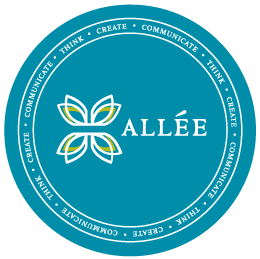Keyword research is an essential component of your SEO strategy and the first step in the copywriting process. When creating your website, it is important to learn what search terms your audience uses. Their search terms are your keywords. Based on these keywords, you can develop useful and high-quality content.
What is keyword research?
Keyword research is part of SEO. It’s the work you do to construct an extensive list of keywords that would rank your website or content in search engines. To create the list, dig into your desired audience and search engines to understand what terms your consumers use in search when they are looking for a service or product. With that list, you can create content that will attract more traffic to your website, answer consumers’ questions and showcase your knowledge in key areas. Keyword research is an ongoing project. Repeating the practice regularly is essential to your website traffic growth. Identifying and using the right keywords will help more of the right people find your brand.
Before we jump into the best keyword search tools to use, let’s discuss some of the essential concepts of keyword research.
1. Focus keyword or key phrase
Is the primary emphasis for your content—the word or phrase you hope to rank in for search results. If you want a post, page or other piece of digital content to rank higher, your keyword or phrase needs to be an ongoing topic (and needs to appear in the content). Proper keyword phrase research should be:
- Personalized
- Based on real data
- Continuous and ongoing
2. Long-tail keywords
These are keywords that include longer word counts (think four or more words). For example, instead of “roof repair” think “roof repair tips for summer.” Highly specific multi-word phrases tend to be far easier to rank well for than the more generic single keyword or double keyword phrases. Your website traffic can increase organically from effective targeted long-tail keywords. According to Wordtracker, here’s a step-by-step buying path that derives from long-tail keywords:
- Consumer becomes aware of a product.
- Consumer seeks information about that product in preparation for possible purchase.
- Consumer evaluates alternatives to product (features, pricing, etc…).
- Consumer makes their purchase decision.
- Consumer pulls out their credit card and completes the transaction.
- Consumer then evaluates the product after buying it and decides if they want to keep or return it.
3. Keyword strategy
This is a set of decisions you make based on your keyword research. Keyword strategy means you will be using your keywords in your online content to build brand reach and awareness, attract more consumers and close the deal. Here are some tips on how to set up your strategy:
- Set up google Analytics and Google AdWords account
- Enable on-site search and use Google Analytics data
- Use keywords to foster ideas for blog posts, website content and social media content.
Now, let’s dive into the best keyword search tools!
1. AnswerThePublic
This platform provides useful phrases and questions that consumers are asking around your keywords. It provides consumer insight you can use to create content and services. Here’s what we like about it:
- It monitors and provides alerts to new suggestions. It tracks trends and provides you with emerging topics.
- It compares data over time. Easily track behavior changes during your research.
- It’s easy to export images to present your insights and create folders to organize your research.
2. Keyword Tool Dominator
This platform quickly finds keywords that are the most popular on search engines and e-commerce marketplaces. Your subscription level will depend on full features, but in general we love the ability to:
- Find keywords, long-tail keywords and niche keywords.
- Help in product listing optimization and sponsored ads execution.
- Increase advertising conversion rates and helps find keywords.
3. Seed Keywords
Seed Keywords finds valuable keywords and asks your contacts to type in keywords they would use to solve scenarios. How it works:
- Create a scenario for a search query
- Give the URL to your contacts
- Watch your keywords grow
Keyword research should be the start of your SEO strategy and is a big component to growing your business and attracting new consumers. Remember to keep writing, researching and updating and measuring your metrics. Here’s a great way to get started and track your research.





